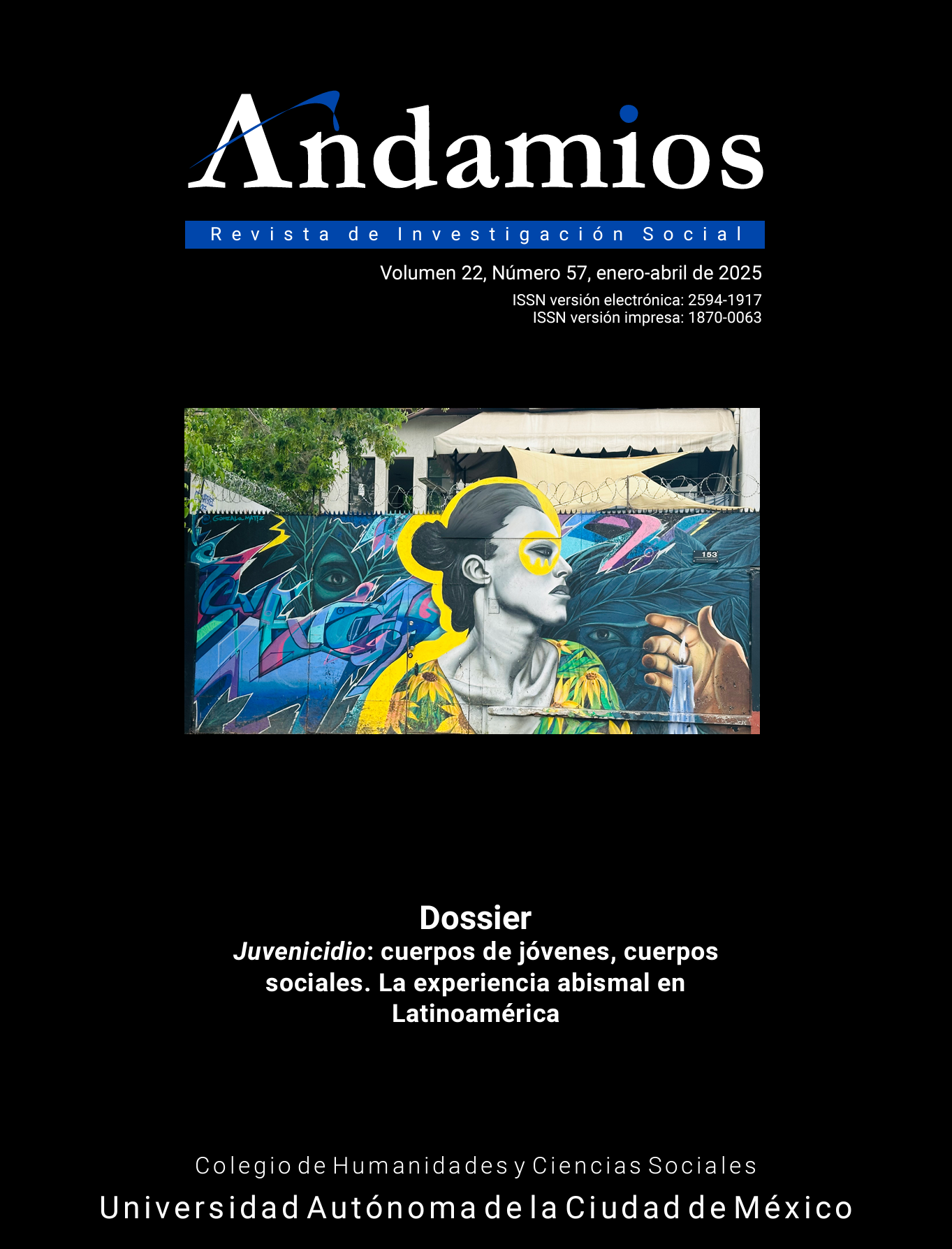“La tierra está cubierta de zanjas”: debatiendo racismo, capitalismo racial y violencia policial en la periferia brasileña
DOI:
https://doi.org/10.29092/uacm.v22i57.1144Keywords:
Planeta dos macacos, racismo, capitalismo racial, violencia policial, BrasilAbstract
La violencia policial contra cuerpos negros en territorios periféricos es el tema central de este artículo. Para comprenderlo, buscamos analizar la relación entre racismo y capitalismo racial en regiones periféricas de Brasil. El texto presenta datos estadísticos sobre homicidios en esta población recopilados en informes del Centro de Estudios de Seguridad y Ciudadanía y el Atlas de la Violencia del Instituto de Investigaciones Económicas Aplicadas, interpretándolos a la luz de discusiones sobre capitalismo racial y racismo. Entendiendo la violencia policial como un fenómeno multicausal derivado del racismo, siendo la causa macro de esta situación, resultado de la idea de raza que se ha construido desde la época colonial en Brasil. De esta manera, este artículo sirve como herramienta para combatir el genocidio de la población negra por parte de operaciones policiales, además de plantear el debate sobre una de las favelas más estigmatizadas de Salvador, Bahía, conocida como el Planeta dos macacos. Además, se pretende contribuir epistemológicamente contra el racismo institucional, destacando la necesidad de repensar las estructuras políticas de Brasil.
Downloads
Published
Issue
Section
License
This Journal is licensed under Creative Commons Mexico 2.5. It is allowed to reproduce and disseminate the contents of the Journal for educational or research purposes, not for profit, as long as they are not mutilated and cite the source (Andamios, Revista de Investigación Social) and the author.
The copyright of the articles published in Andamios, Revista de Investigación Social are transferred by the author(s) to Universidad Autónoma de la Ciudad de México when the originals have been accepted, so that they are published and distributed both in the printed and electronic versions of the Journal. However, as established by law, the author(s) retains their moral rights. The author(s) will receive a form of assignment of copyright that they must to sign when their original has been accepted. In the case of collective articles, the signature of one of the authors will suffice, provided that the latter has obtained the consent of the others.
Authors may use the material of their article in other works or books published by themselves, with the condition of quoting Andamios as the original source of the texts.
The articles contained in this publication are the responsibility of their authors and do not compromise the official position of Andamios, Revista de Investigación Social of the Universidad Autónoma de la Ciudad de México.


